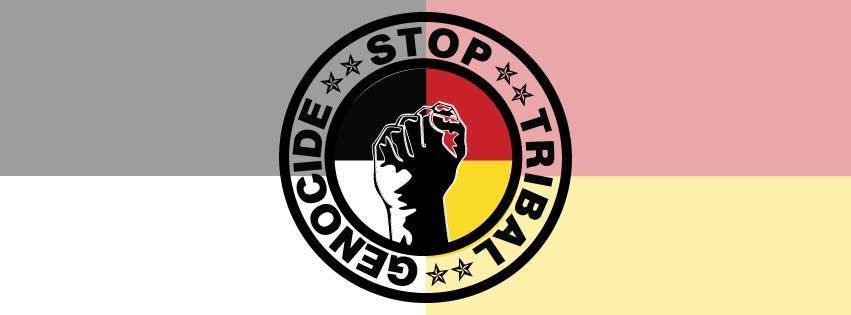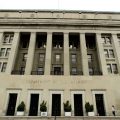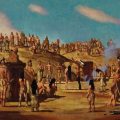 Stop Tribal Genocide is a movement dedicated to promote Native American civil rights
Stop Tribal Genocide is a movement dedicated to promote Native American civil rights
I have been conducting extensive research in the records of the Bureau of Indian Affairs (“BIA”) for many years now. During my five years of research, I’ve located important historical records that relate to my personal ancestry and other members of my tribe. Subsequently, I started researching many family lines in different tribes, including Pechanga, Pala, San Pasqual, who have been affected via tribal disenrollment.
During my research, I have uncovered many discrepancies in many agency records. Issues I’ve identified include blood quantum, tribal affiliations, adoptions, etc. The Bureau of Indian Affairs tends to make 2 to 3 copies of their records. Some records are kept in the National Archives and other records are kept in their repository, the American Indian Records Administration located in Kansas.
The records of the National Archives are limited in information, dependent on what the BIA supplies. the BIA has placed additional notes and corrections in their records kept in their repository. These records contain valuable information when it comes to enrollment and disenrollment issues.
Additionally, the records of the BIA not only have an effect on tribal disenrollment, but are valuable information that can help hundreds of tribes gain federal recognition thru the Office of Federal Acknowledgement, a Department within the Department of the Interior.
When a tribal council decides to disenroll a Native American from a tribe, the individual must prove their lineage. Many of these times, the individual is forced to visit the National Archives or other repositories to provide supporting certified documentation that substantiates their claim. In some cases, these documents require FOIA requests.
In my experience, the BIA in California refuses to provide responsive records to these individuals and provides redacted records, overpriced fees, or sometimes no records; failing to help the Native American prove their lineage to a tribe. This places them at a distinct disadvantage. Moreover, some Natives are not familiar with the administrative process or court litigation, others don’t have the required funds to contact a lawyer to escalate their FOIA request.
California is the leading State on tribal disenrollment, the BIA has failed in many ways to protect the rights of tribal citizens. The Federal government’s trust responsibility is to all Native Americans, not just the chairman and councils.
While many Native Americans and other historians and researchers have been able to access the records of the BIA thru FOIA requests, it’s been challenging in some occasions, because my expertise is now tribal diserollment. The BIA does not like that at all.
I noticed BIA’s non-compliance when I started writing letters to Senators and BIA about my research on San Pasqual and other tribes who have illegally (against tribal constitutions) disenrolled tribal members.
Not only has the BIA acted arbitrary and capricious, but the agency has been caught in conflicts of interests with tribes who disenroll their members.
In situations of individuals who are disenrolled, the BIA fails to acknowledge their correspondence, so they are forced to seek a response thru FOIA requests.
When I began writing letters and providing forensic genealogical information to the BIA about their historical errors in other families, the BIA started to redact information requested thru FOIA. In some cases, they requested “further clarification” in records I believe to be specific to my requests, ignoring my FOIA requests, and charging excessive unaffordable fees.
In about 30 administrative appeals I’ve filed with the Office of the Solicitor (“SOL”) which is the corresponding agency that handles their appeals, only one appeal was ever answered. All other FOIA appeals have been ignored.
In accordance to 43 CFR 2.62, the basic time limit for responding an appeal is twenty (20) business days. If the Department is unable to reach a decision on an appeal within the given time limit for response, the appropriate official for FOIA appeals will notify the Requestor of the statutory right to seek review in the United States District Court. This now leaves two agencies within the DOI be non-compliant to FOIA.
The inconsistent manner in which procedures have been followed by the BIA have brought many questions about the actions of agency.
The records created by the BIA are subject to FOIA to anyone requesting such records with the appropriate redactions when applicable. However, most of the FOIA requests during the last years, the restrictions applied are non-compliant, especially when providing proof of death, or knowing that the same exact records are fully available in the National Archives, or ancestry.com with no restrictions.
In my latest lawsuit, I am demanding the BIA to provide records of the Pechanga Indian Tribe, one tribe who has disenrolled a good friend of mine, Rick Cuevas.
Rick Cuevas has been reporting on his personal blog many of the stories on tribal disenrollment, the abuse of tribal sovereignty and many other injustices currently happening in Indian Country.
You can read my latest complaint here.
Emilio Reyes descends from the Gabrielino Tongva Tribe. Emilio is the founder of Stop Tribal Genocide, a movement dedicated in promoting Native American rights.




Leave a Reply